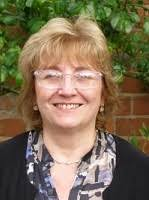
I am Professor in Education Practice and Associate Head of School (Global Engagement) in the School of Humanities and Research Associate in the Centre for Global Learning (GLEA) at Coventry University (UK). I am passionate about the internationalisation of the curriculum through Collaborative Online International Learning (COIL)/Virtual Exchange (VE) (also known as telecollaboration) and Computer Assisted Language Learning (CALL).
I apply an action-research-informed thresholds concept pedagogy methodological approach to my work. I have organised various conferences at Coventry University and workshops for other Higher Education Institutions both in the UK and overseas. I have presented at over 100 national and international conferences and am part of the editorial review boards of various journals and conferences. I have led numerous action research projects and teams and in 2013 I was awarded a National Teaching Fellowship from the HEA (Higher Education Academy), in recognition of the national and international impact of my innovative work in languages and linguistics. In 2016 I was awarded a Principal Fellowship, in recognition of my strategic leadership in HE. In collaboration with my colleagues in the School of Humanities and in GLEA, I have set up new COIL exchanges and research collaborations with Brazil, China, France, Mexico, the Netherlands, Spain and Sri Lanka. I have published work on digital literacies, personal development planning, intercultural communicative competence and threshold concepts, often in collaboration with my students. I like to reflect on my practice ‘through the looking glass’ of my students’ perspectives (e.g. Towards a Role-Reversal Model of Threshold Concept Pedagogy, 2014 and Intercultural Communicative Competence for Global Citizenship, with Fiona Lee, 2018). My most recent work (2017 to date) relates to the integration of existing FutureLearn MOOCs (Massive Open Online Courses) into the English teacher education curriculum to encourage students to critically review their practice and their beliefs on learning and teaching ‘in’ action, ‘on’ action and ‘for’ action: e.g. this publication stemming from an English Teaching Research Award (ELTRA), by the British Council, available here: https://www.teachingenglish.org.uk/article/b-meltt-blending-moocs-english-language-teacher-training
More recently I have collaborated with colleagues in GLEA to explore the epistemological and ontological opportunities and challenges of COIL theory and practice: e.g. Innovation in Collaborative Online International Learning: A Holistic Blend. In Burgos, D. (Ed.) Radical Solutions in Higher Education with Professor Katherine Wimpenny from GLEA (2020). I am honoured to be currently working with Professor Finardi and her team at UFES on a project funded by CAPES to explore the affordances of COIL for English language teacher education during the pandemic.